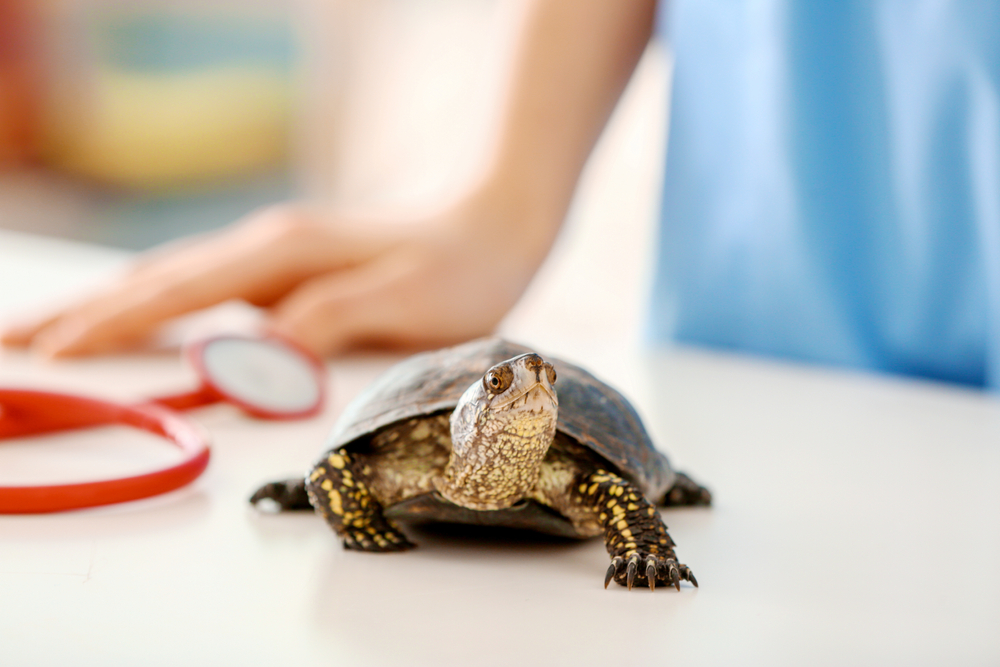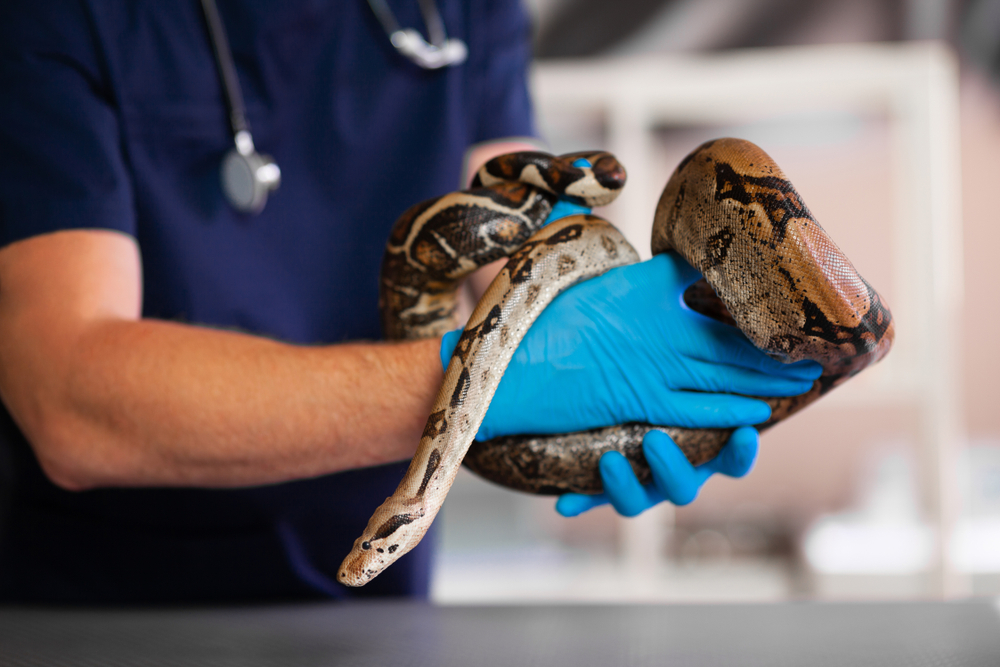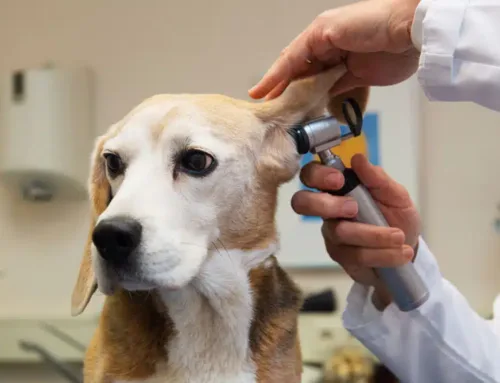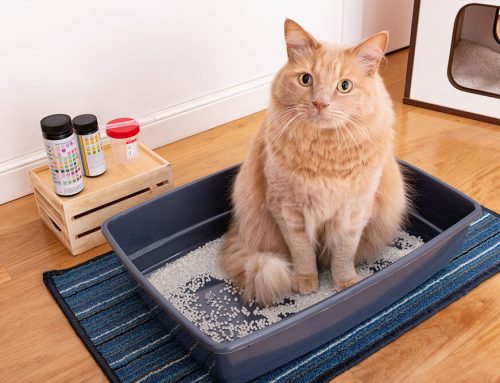Pets come in all shapes, sizes—and species. Exotic pets (e.g., reptiles, amphibians, birds, and small mammals) can make great companions for people who live in small homes or apartments. But these unique pets aren’t for everyone—exotic pets require specialized care, attention, and owner education.
Our Fairfax Veterinary Clinic team provides high-quality care for creatures great and small, and we are dedicated to ensuring that each pet lives a comfortable, happy, and healthy life. Whether your pet fits in your pocket or can ride on your shoulder, the Fairfax Veterinary Clinic is here to provide expert care and education.
Welcome, friends—exotic pet services
Our veterinary team is experienced and knowledgeable about a wide range of exotic species. In addition to providing specialized veterinary care for exotic pets, our team offers husbandry information—care guidance on your pet’s housing, nutrition, behavior, hygiene and grooming, parasite control, handling, and illnesses. An example of the exotic pets we see includes:
- Small mammals — Including rabbits, guinea pigs, hamsters, rats, and mice
- Reptiles — Including bearded dragons, leopard geckos, box turtles, and snakes, such as corn snakes and pythons
- Amphibians — Including salamanders, frogs, and toads
- Birds — Including parakeets, cockatiels, parrots, and more
- Backyard poultry — Including chickens, guinea fowl, ducks, and geese
Whether you have experience with, are considering, or recently welcomed an exotic pet to your home, our team can answer your questions, make recommendations, and provide nuanced and thoughtful care for your nontraditional pet.
At your exotic pet’s first appointment, we focus on evaluating their current health, educating you about your pet’s needs, and include care demonstrations and habitat and diet requirements. In addition we invite you to ask questions and express your concerns. Our Fairfax Veterinary Clinic team wants you to come away from your pet’s examination feeling more confident about and capable of caring for your unique pet.
Tough but sensitive—pet reptile husbandry basics
Dogs and cats are generally easygoing about their habitat—if your thermostat is on the fritz or their food is stale, most dogs and cats carry on in good humor. But reptiles are extremely sensitive to their habitats—making their care and health a challenge for novice owners. According to some sources, 90% of sick reptile cases are preventable, and caused by improper husbandry (i.e., at-home care and management). To help you ensure your pet reptile remains healthy, we are focusing here on reptile care.

Routine veterinary care for your pet reptile
All pets—including reptiles—should receive routine veterinary care. An annual wellness examination—including a physical assessment, blood work, X-rays, and fecal screening—is essential for early detection of disease, malnutrition, and external or internal parasitic infections. This is especially important for species that hibernate—as a reptile who is slightly sick before entering hibernation may not survive or may emerge from hibernation gravely ill.
At your reptile’s annual appointment, the veterinarian will explain their examination findings, make treatment recommendations, and suggest at-home care modifications. Do not wait until your reptile is sick—healthy pet examinations ensure your husbandry routine is appropriate and can help you prevent your reptile from becoming ill.
Habitat design for your pet reptile
Your pet reptile’s health is dependent on their environment. Habitat considerations must include:
- Temperature — As an ectotherm (i.e., cold-blooded animal), your reptile’s habitat plays a critical role in body temperature regulation. While each species has an optimal temperature zone, their environment should provide a gradient (i.e., range) around this zone—allowing the reptile to change location based on their temperature needs.
- Humidity — Reptiles absorb water through their skin, therefore you must maintain their habitat’s appropriate humidity and provide soaking opportunities to prevent them from becoming dehydrated.
- Lighting — Ultraviolet (UV) light provides important health benefits for most reptile species, including calcium (i.e., Vitamin D) absorption, metabolism, and immune system health. UV lights should be hung at the appropriate distance—as labeled on the bulb—to ensure safe and appropriate light exposure and absorption. UV bulbs must be replaced every six months.
- Space — Space requirements can vary greatly by reptile species. Although your reptile may be small now, it can be helpful to anticipate future growth when designing their habitat. Your veterinarian can advise you on an ideal habitat size.
- Substrate — Avoid dangerous substrates such as sand, sawdust, and wood shavings or chips as these can cause impaction, skin lesions, and respiratory issues. Ask your veterinarian about the ideal substrate for your reptile.
Because each species has its own unique requirements, always consult with your veterinarian for specific guidance on your pet’s habitat size, design, optimal temperature zone, and humidity range. Additional habitat items may include branches for climbing, rocks, plants, hiding places, and wading pools or dishes.
Nutrition for your pet reptile
Your pet reptile must have a nutritionally balanced diet that emphasizes variety and includes species-appropriate foods that mimic their natural diet. Our veterinarians discourage live prey feeding (i.e., anything larger than insects) for carnivorous reptiles because it is cruel and the prey animal may seriously injure your reptile. Depending on your reptile’s species, our diet recommendations may include:
- Insects — To provide maximum nutrition for your reptile, crickets and similar insects must be gut-loaded (i.e., fed nutrient-dense foods) 12 hours prior to feeding.
- Grass hay — Hay is a necessary fiber source for tortoises and turtles.
- Fresh fruits and vegetables — This may include leafy greens, squash, berries, melons, and more.
- Calcium supplementation —Most reptiles require calcium supplementation. This should be provided in the form of calcium carbonate powder without vitamin D or phosphorus.
- Commercial reptile diets — Although these products can be included in your reptile’s diet, they do not emulate a natural diet and should never be the sole nutrition source.
Because underfeeding and overfeeding are equally dangerous to your pet reptile’s health, ask your veterinarian to provide precise recommendations on the amount you should be feeding your reptile.
Safe handling for your pet reptile
Although you may not snuggle your pet reptile as you would a dog or cat, reptile husbandry requires some handling and restraint. Because reptiles and their owners can be harmed through inappropriate handling techniques, ask your veterinarian or a reptile expert to teach you the safest technique for handling your pet. This will help protect you and your pet reptile, and help you feel more confident, which—in turn—further enhances safety.
Keep in mind that reptiles naturally harbor dangerous bacteria such as Salmonella. You must always wash your hands before and after any interaction with your reptile or their care supplies, and never eat, drink, or touch your face while handling your ectotherm friend.
Fairfax Veterinary Clinic is dedicated to promoting lifelong health and wellness for exotic pets. If your exotic pet becomes ill, or if they need their initial veterinary examination—schedule an appointment with our knowledgeable team.








Leave A Comment